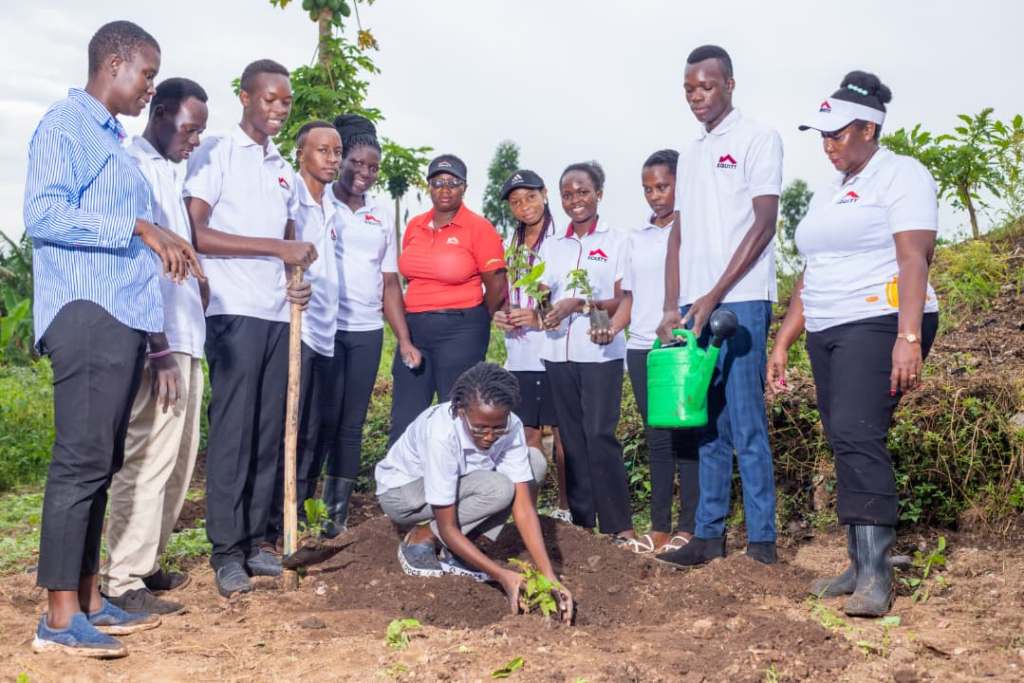Equity Bank Uganda, in partnership with the Umukuka wa Bugisu — the cultural leader of the Bamasaba — and Gro Foundation, has launched a large-scale tree planting initiative to promote environmental conservation and reduce carbon emissions in the Bugisu subregion.

The project will cover eight acres around Mbale City’s main dumping site, where thousands of trees will be planted to act as natural carbon sinks. The trees are expected to improve air quality, enhance the city’s resilience to climate change, and prevent disasters similar to the one that occurred at the Kitezi landfill in Kampala.
Under the partnership, Equity Bank will contribute Shs60 million towards the project, while Gro Foundation — a non-profit organisation focused on reforestation — will provide technical expertise to ensure that indigenous tree species are planted, nurtured, and monitored for long-term sustainability.

The initiative was officially launched on Saturday by the Umukuka during celebrations marking his second anniversary as head of the Bugisu Kingdom. By the end of 2026, the partners aim to plant 60,000 trees across the region.
Speaking at the launch, Virginia Ssemakula, Equity Bank’s Manager for Energy, Environment and Climate Change, said the bank’s commitment extends beyond financial services.
“At Equity, we believe it is our duty to go beyond traditional banking. That’s why we are deeply involved in energy and environmental initiatives,” she said. “We are investing in healthier communities and a sustainable future — building not only financial prosperity but also environmental resilience.”

Mbale City Council Composite Manager, Lydia Apeduno, welcomed the project, noting that trees planted around dumping sites would help curb harmful emissions.
“Dumping sites often emit gases such as carbon dioxide. These trees will help absorb those emissions while serving as boundaries to prevent encroachment,” she said.
The programme is also expected to support the people of Bugisu in achieving agricultural and socio-economic transformation while mitigating the effects of recurring mudslides in the region. The trees will improve soil fertility, conserve water, and strengthen farms against the impacts of climate change, while providing food, fodder, and alternative sources of income.

Laban Musiguzi from Gro Foundation emphasised the long-term benefits of agroforestry.
“Integrating trees into farming systems helps control soil erosion, manage pests, and enhance biodiversity,” he said. “This is not just about planting trees — it’s about planting hope, securing the environment, and protecting the climate for future generations.”
The event confirmed Equity Bank’s continued commitment to environmental protection and sustainable development. The initiative forms part of the bank’s Environmental, Social and Governance (ESG) strategy, which integrates sustainability into its core operations. Nationwide, Equity Bank has set an ambitious goal to plant 35 million trees by 2026.












